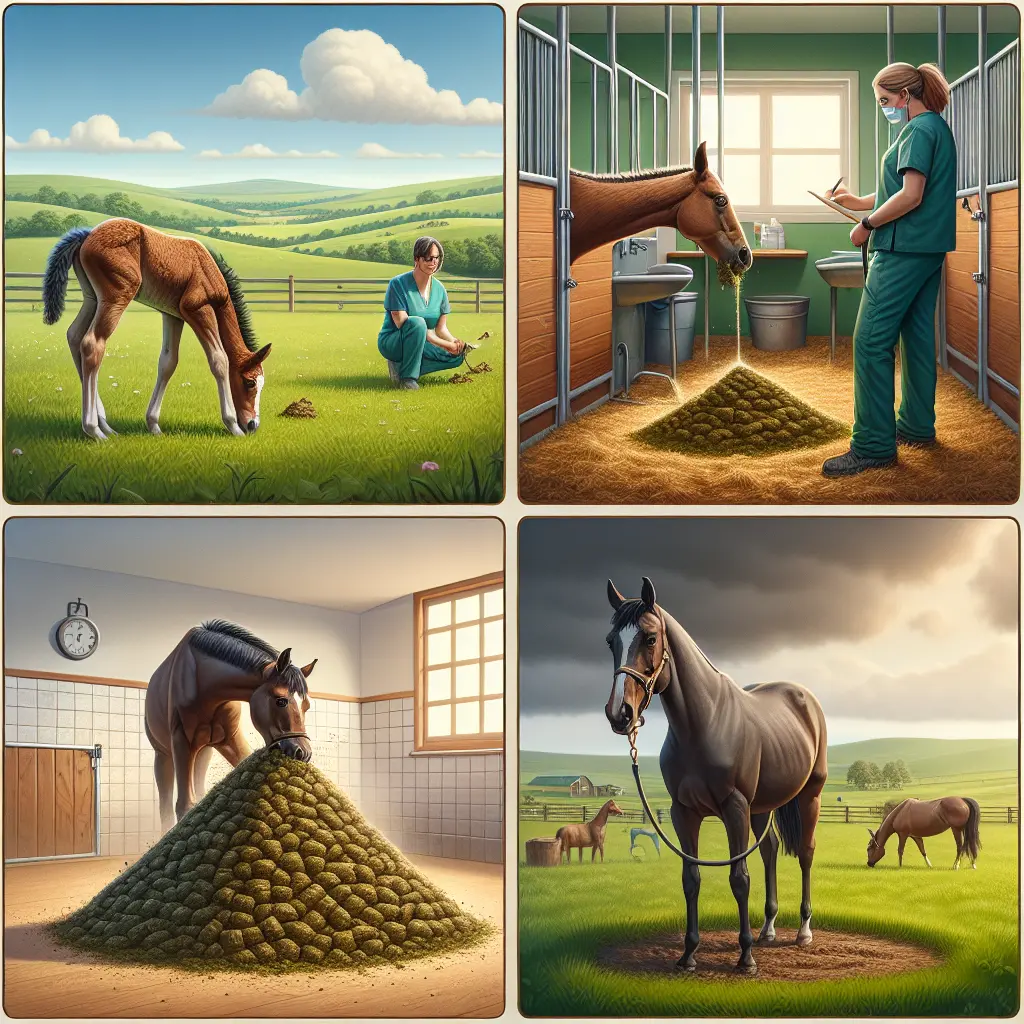Understanding Coprophagy: Why Does Your Horse Eat Manure?
If you've ever caught your horse nibbling on manure, you're not going mad. While this behavior, known as coprophagy, might seem peculiar, it's more common than you'd think. In this blog, we'll explore why your horse might be eating manure and what steps you can take to address this issue.

Normal Behavior in Foals
Foals, charming as they are, often engage in behavior that makes us scratch our heads. Coprophagy in young horses is actually a relatively normal behavior. Starting around 5 days old, foals might start sampling their mother's manure[3].
The Importance of Digestive Microbes
This habit isn't just for fun; it's crucial for health. By eating their mother's manure, foals help populate their digestive systems with beneficial bacteria needed for effective fiber digestion[2][3]. These microbes play a key role in preparing the foal's system for the transition to solid foods like grass and hay.
Abnormal Behavior in Adult Horses
While foals get a pass for coprophagy, adults munching on manure could signal underlying issues.
Nutritional Deficiencies

A frequent cause of coprophagy in adult horses is nutritional deficiencies. Diets low in fiber or deficient in essential minerals and proteins might drive horses to seek nutrients elsewhere—unfortunately, in their own manure.
Lack of Forage
Horses have evolved as grazers, needing to munch for several hours a day. A lack of forage can lead some horses to seek alternative sources of fiber, and, bizarrely enough, manure fits the bill[2][3].
Boredom and Hunger
Boredom is the bane of many creatures, including our equine friends. Horses that spend too much time confined to stalls or dry lots without sufficient mental and physical stimulation might resort to coprophagy out of sheer boredom[5].
Medical Conditions
Sometimes, the root of the problem isn't the diet or environment, but an underlying medical issue. Conditions like equine motor neuron disease (EMND) or vitamin K deficiency could drive horses towards this behavior. It's wise for a veterinarian to rule out any health issues if this behavior is observed[3][5].
Symptoms and Health Risks
Parasitic Infections
While the occasional nibble might not harm, regular consumption of manure can pose serious health risks. One major concern is the risk of internal parasitic infections, leading to gastrointestinal problems[1][2][5].

Digestive Problems
Regular manure consumption could upset the delicate balance in the hindgut microbiome. This might result in digestive complications such as colic and ulcers[1][2][4].
Nutritional Imbalances
Relying on manure as a nutrient source isn't ideal. While manure does contain some nutrients, it cannot substitute a balanced diet and might lead to nutritional imbalances and deficiencies over time[5].
Diagnosis and Treatment
Notice your horse indulging in coprophagy? Here's what you can do:
Environmental Changes
The key often lies in the horse's environment rather than the horse itself. Consider taking these steps:
- Provide Adequate Forage: Ensure access to high-quality hay and pasture to meet fiber needs[2][3][4].
- Balance the Diet: Introduce a balanced diet, avoiding high-grain and low-fiber feeds. Supplements might help correct deficiencies[1][2][3]. Every Horse Vitamins & Supplements are an excellent option to explore.
- Increase Mental Stimulation: Provide adequate exercise, turnout, and interaction with other horses[5].

Management Strategies
Prevention is integral in managing coprophagy. Here are some strategies:
- Clean Stalls and Paddocks Regularly: Keep them free of manure to reduce temptation[1].
- Free-Choice Salt and Minerals: Provide access to salt and mineral blocks to prevent deficiencies[5].
- Monitor Feeding Frequency: Feed smaller, more frequent meals to keep the horse satisfied[3].
Conclusion
While observing your horse indulge in coprophagy might initially alarm you, it's often a manageable issue. By analyzing dietary choices, adjusting environments, and considering complete management strategies, you can likely find a resolution. Remember, stay stylish while taking this journey with your horse—after all, you both deserve the best care and accessories!
For more specific guidance on equestrian supplements and equipment, feel free to explore Just Horse Riders or consult an equine veterinarian to tailor solutions unique to your horse.


